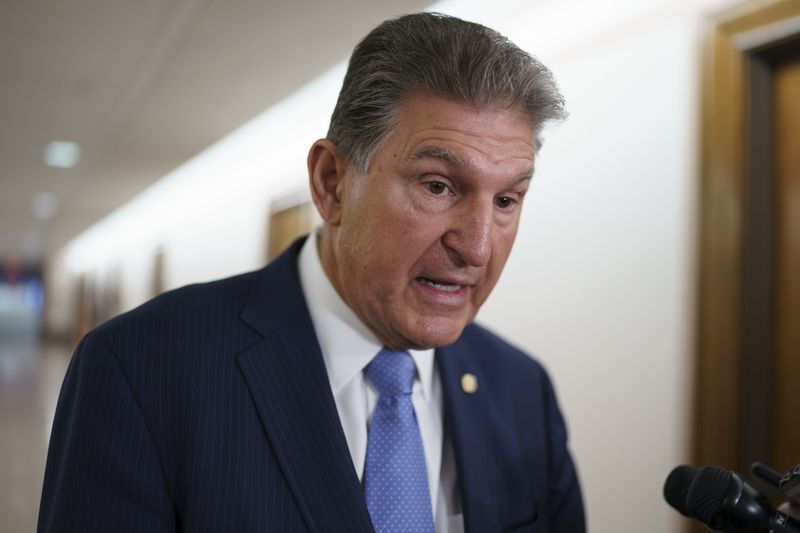From the Wonk Room.
Senators are beginning to seriously tackle climate and clean energy
reform, responding to the leadership of Sen. John Kerry (D-MA), Sen. Joe
Lieberman (I-CT), and Sen. Lindsey Graham (R-SC) with letters staking
out positions and making specific demands. Here’s an overview of these
letters:
The Udall Group: Twenty-two Senators Say Senate Should ‘Consider’ Climate Legislation ‘This Year’.
Led by Sen. Tom Udall (D-NM), a moderate bloc of twenty-two Democratic
senators
“believe the United States should consider bipartisan and comprehensive
clean energy and climate legislation this year with a renewed focus on
jobs and reduced dependence on foreign oil.” Critically, eleven of the
signatories last year signed on to a Republican filibuster threat of
green economy
legislation,
and seven are members of Sen. Evan Bayh’s (D-IN) Moderate Democrats
Working
Group .
Bayh himself did not sign Udall’s letter.
Download the Udall Group letter. Signatories: Begich (D-AK), Bennet
(D-CO), Brown (D-OH), Burris (D-IL), Cantwell (D-WA), Carper (D-DE),
Casey (D-PA), Franken (D-MN), Hagan (D-NC), Harkin (D-IA), Kaufman
(D-DE), Klobuchar (D-MN), Merkley (D-OR), Murray (D-WA), Shaheen (D-NH),
Specter (D-PA), Stabenow (D-MI), Tester (D-MT), Udall (D-NM), Udall
(D-CO), Warner (D-VA), and Wyden (D-OR).
The Nuke Group: A Bipartisan Group Of Eleven Senators Demand A Nuclear Energy Summit.
Five Democrats and six Republicans, from Sen. Amy Klobuchar (D-MN) to
Sen. Jim Inhofe (R-OK), propose the White House hold a “nuclear energy
summit” on the “development of a 50-year strategy” within “the next 3-4
months,” because “safe nuclear power must play an increasingly important
role in meeting our rising energy demand and ensuring cleaner air.” They
want Energy Secretary Steven Chu, EPA
Adminstrator Lisa Jackson, NRC Chairman
Gregory Jaczko, and Bill Gates to attend.
Download the Nuke Group letter. Signatories: Carper (D-DE), Landrieu
(D-LA), Klobuchar (D-MN), Webb (D-VA), Warner (D-VA), Voinovich (R-OH),
Crapo (R-ID), Vitter (R-LA), Sessions (R-AL), Alexander (R-TN) and
Inhofe (R-OK).
Coastal State Senators: Don’t Drill On Me.
In a letter to Kerry, Graham, and Lieberman, ten Democratic senators
from coastal states – Florida, New Jersey, Rhode Island, Maryland,
Oregon, and Ted Kaufman of Delaware – write that “our states are
literally the front lines when it comes to the severe impacts we’ll see
from sea level rise and stronger storms,” and express their concerns
that “some interests are aggressively pursuing an effort to open the
nation’s coasts and oceans for unfettered access to oil and gas
drilling.” They reject “the concept of sharing revenue with states,” as
“funds that belong to the American people should be shared equally and
prioritized to reduce the federal deficit and to protect our oceans and
coasts that provide this resource.” They call for use-it-or-lose-it
language on oil leases. Increased offshore drilling won’t reduce the
cost of gas, they recognize, saying “the only way for us to lower oil
prices is to pursue and aggressive policy of energy efficiency and
conservation.”
Download the Coastal Senators letter. Signatories: Nelson (D-FL),
Menendez (D-NJ), Lautenberg (D-NJ), Reed (D-RI), Whitehouse (D-RI),
Cardin (D-MD), Mikulski (D-MD), Merkley (D-OR), Wyden (D-OR), and
Kaufman (D-DE).
Feinstein Drills Into Policy Details.
In a letter to Kerry, Sen. Dianne Feinstein (D-CA) touches on several
specific policy details for his “bipartisan legislation to address the
pressing problem of climate change.” She wants heavy industry to be
exempted from the initial cap, opposes pre-emption of California’s
tailpipe emissions standards, supports the Waxman-Markey formula for
electric utility permit giveaways, wants new offshore drilling to
require state-level legislation, thanks Kerry for including the
Snowe-Feinstein market oversight language, and wants the oil carbon fee
to be indexed to an emissions target rather than a carbon market.
Significantly, Feinstein recommends that “the legislation’s spending
authorizations expire no later than ten years after enactment”—a major
change from the forty-year permit allocation formulas in previous
legislation.
Download Feinstein’s letter.
Begich: ‘Alaska Is Ground Zero For Climate Change,’ So Let’s Drill It.
Sen. Mark Begich (D-AK) penned a letter saying “Alaska is ground zero
for climate change. We are feeling its near-term effects far more than
the residents of any other state, including retreating sea ice, rapidly
eroding shorelines, thawing permafrost, ocean acidification, and
changing fish and wildlife migration patterns.” Despite this, Begich
calls for “greater emphasis and expanded incentives for natural gas” and
“sharing in revenue from oil and gas development” from federal waters
off the Arctic coast. Citing the “billions of dollars” of “damage to
Alaska public infrastructure alone due to climate change,” Begich also
requests “a higher priority for domestic rather than international
adaptation funding” and an increased investment in Arctic research.
However, Begich does not call for stronger emissions reduction targets,
stronger renewable or efficiency standards, stronger investments in
green technologies, or anything that would allow the United States to
lead an international agreement to halt greenhouse gas pollution.
Download Begich’s letter.
Kerry, Graham, and Lieberman have been holding a marathon of meetings.
On Thursday they met with representatives of oil majors Shell, BP
America, and ConocoPhillips, yet again with the pollution lobbyists of
the Alliance for Energy and Economic Growth, and also with Sen. Mark
Warner (D-VA) and later with members of the electric utility trade group
Edison Electric Institute.
None of these senators’ letters call for stronger pollution reductions,
stronger renewable or efficiency standards, stronger scientific review,
stronger regulation of hydraulic fracturing, stronger action on coal ash
waste, stronger mercury rules, an end to mountaintop removal, or greater
auctions of pollution permits.
 Sen. Joe Manchin
(D-W.V.), the chair of the Senate energy committee, has released the
Sen. Joe Manchin
(D-W.V.), the chair of the Senate energy committee, has released the

